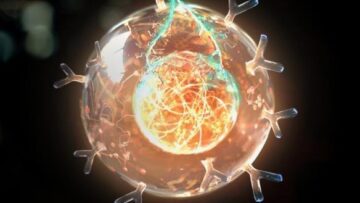Shelly Fan in Singularity Hub:
 Dubbed “living drugs,” CAR T cells are bioengineered from a patient’s own immune cells to make them better able to hunt and destroy cancer. The treatment is successfully tackling previously untreatable blood cancers. Six therapies are already approved by the FDA. Over a thousand clinical trials are underway. These aren’t limited to cancer—they cover a range of difficult medical problems such as autoimmune diseases, heart conditions, and viral infections including HIV. They may even slow down the biological processes that contribute to aging.
Dubbed “living drugs,” CAR T cells are bioengineered from a patient’s own immune cells to make them better able to hunt and destroy cancer. The treatment is successfully tackling previously untreatable blood cancers. Six therapies are already approved by the FDA. Over a thousand clinical trials are underway. These aren’t limited to cancer—they cover a range of difficult medical problems such as autoimmune diseases, heart conditions, and viral infections including HIV. They may even slow down the biological processes that contribute to aging.
But CAR T has an Achilles heel.
Once injected into the body, the cells often slowly dwindle. Called “exhaustion,” this process erodes therapeutic effect over time and has dire medical consequences. According to Dr. Evan Weber at the University of Pennsylvania, more than 50 percent of people who respond to CAR T therapies eventually relapse. This may also be why CAR T cells have struggled to fight off solid tumors in breast, pancreatic, or deadly brain cancers. This month, two teams found a potential solution—make CAR T cells more like stem cells. Known for their regenerative abilities, stem cells easily repopulate the body. Both teams identified the same protein “master switch” to make engineered cells resemble stem cells. One study, led by Weber, found that adding the protein, called FOXO1, revved up metabolism and health in CAR T cells in mice. Another study from a team at the Peter MacCallum Cancer Center in Australia found FOXO1-boosted cells appeared genetically similar to immune stem cells and were better able to fend off solid tumors.
More here.
